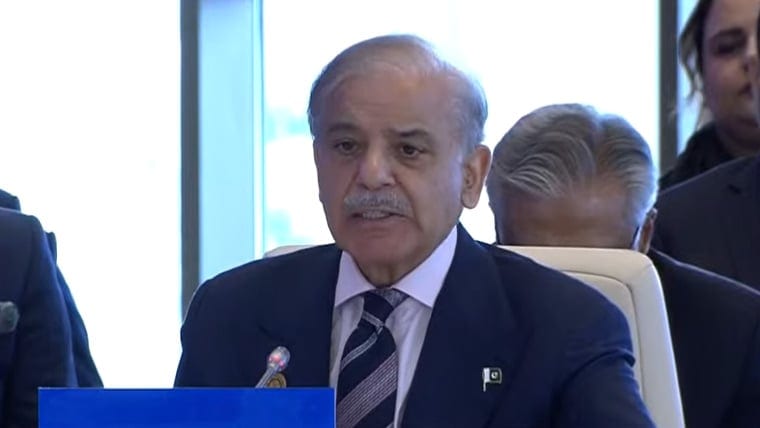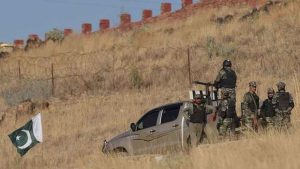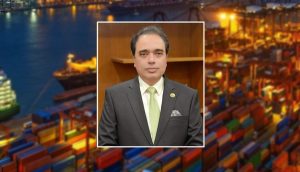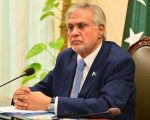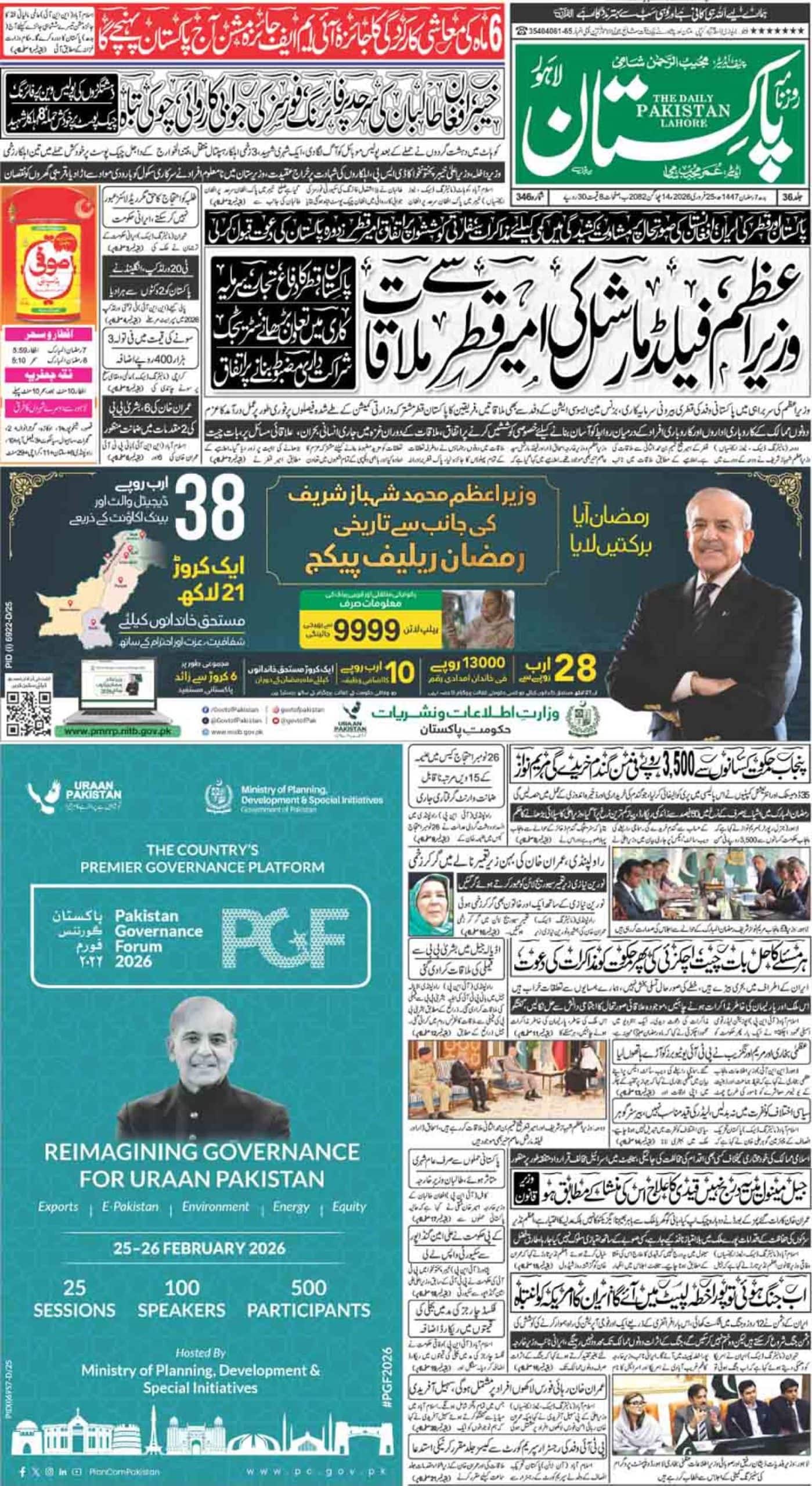Prime Minister Shehbaz Sharif on Friday urged the Economic Cooperation Organization (ECO) member states to deepen collaboration in response to the pressing regional and global challenges, particularly climate change and geopolitical instability.
Addressing 17th ECO Summit, the prime minister underscored the urgent need for collective action as ECO member states struggle with the severe consequences of climate change, from melting glaciers and desertification to extreme weather events and declining agricultural productivity.
“These challenges threaten the food security and livelihoods of millions. Pakistan remains among the top 10 countries most vulnerable to climate change,” he said, recalling the catastrophic 2022 floods that displaced over 33 million people in Pakistan.
Just last week, he said several lives were tragically lost in the affected districts of Pakistan. “Pakistan on its part has undertaken a series of climate-related policy initiatives and is aggressively pursuing of 4F plans focusing on resilience, recovery, rehabilitation and reconstruction,” he added.
The prime minister said in this regard Pakistan proposed the development of low emissions corridors and regional disaster resilience system.
“A dedicated framework to mobilize climate finance along with regional clean energy corridors and eco-tourism initiatives can further drive inclusive sustainable growth creating green jobs, especially for youth and women and supporting livelihoods,” he said.
Condemning Israel’s recent strike on Iran, the prime minister called it “unlawful, unjustified and uncalled for,” and expressed deep condolences to the Iranian people.
“Pakistan strongly condemns this act of Israeli aggression… We pray for a speedy recovery of our injured brothers and sisters in Iran.”
Furthermore, he said the unprovoked and reckless Indian hostility directed towards Pakistan after an unfortunate incident in Indian Illegally Occupied Jammu and Kashmir (IIOJK) was yet another attempt to destabilize regional peace.
“The world witnessed the steadfast resolve of our valiant Armed Forces under the leadership of Field Marshal Syed Asim Munir,” the prime minister said.
He also appreciated the support and solidarity extended to Pakistan by the brotherly ECO members states in the aftermath of Indian aggression earlier this year.
He strongly condemned the Israel’s barbarism in Gaza saying “Pakistan stands firmly against those who perpetrated barbaric act against innocent people anywhere in the world whether in Gaza or IIOJK or Iran”.
The prime minister also drew attention to what he called the “weaponization of water” by India, referencing New Delhi’s violations of the Indus Waters Treaty and the recent ruling by the Permanent Court of Arbitration.
“This violation is completely unacceptable. The Indus waters are a lifeline for Pakistan’s 240 million people. India’s actions amount to aggression.”
He categorically said that under no circumstances, India could not be allowed to pursue this dangerous path that will amount to an act of aggression against people of Pakistan.
On the economic front, Shehbaz Sharif emphasized the need to operationalize long-pending agreements under ECO Vision 2025, especially the ECO Trade Agreement (ECOTA) and transport corridors, connecting member states. He referenced ECO’s origins as the Regional Cooperation for Development (RCD), a partnership between Pakistan, Iran, and Turkey in the 1960s, as a historic blueprint for present-day integration.
“Promotion of trade and investment is key to achieving common goals of regional connectivity, energy security, and economic growth.”
The prime minister thanked ECO member states for designating Lahore as the ECO Tourism Capital for 2027, inviting all delegates to experience Pakistan’s rich cultural heritage.
“Lahore, the cultural heart of Pakistan, will enthrall all who visit us. We extend a warm invitation to all member states.”

